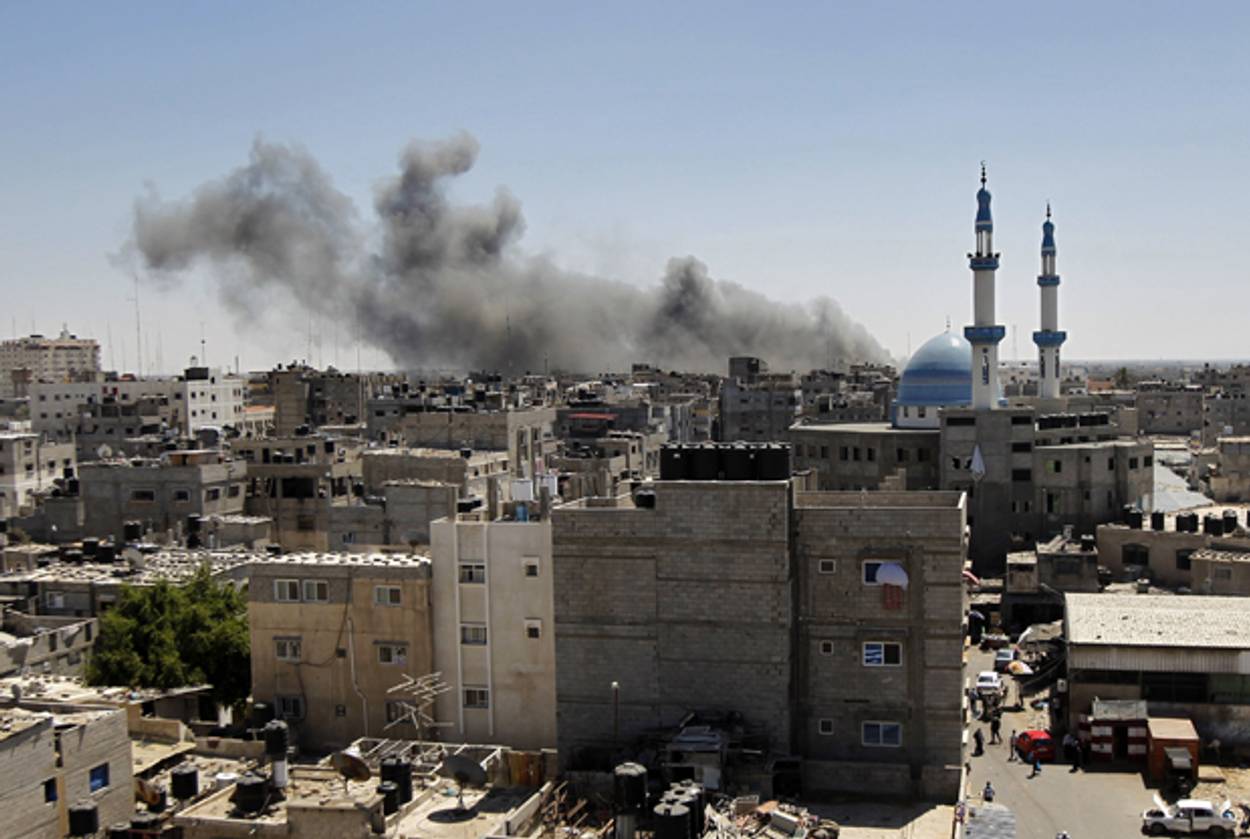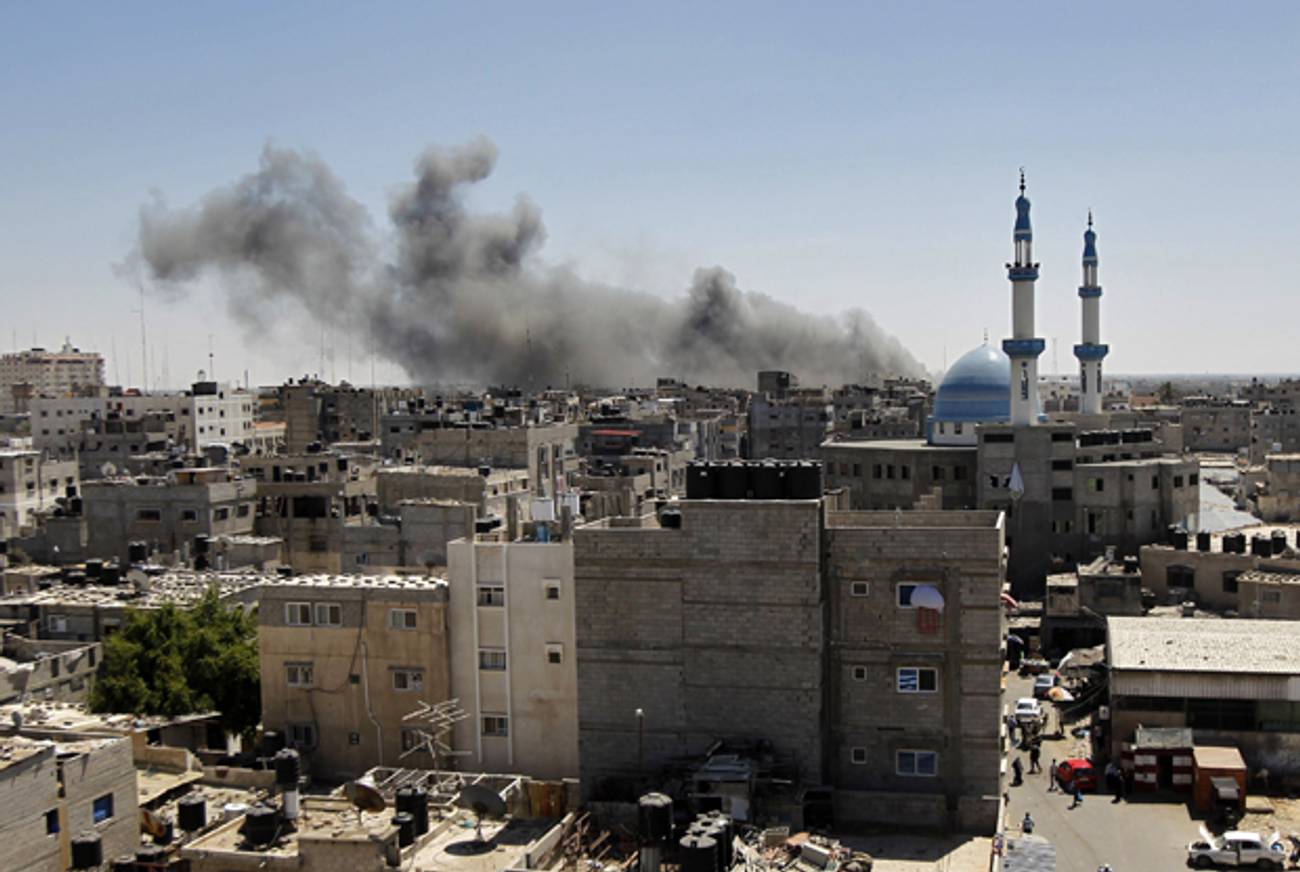Jewish Fast Day Magnified by Conflict in Israel
The 17th of Tammuz, which falls on Tuesday, has additional meaning this year




Among the litany of Jewish fast days, Shiva Asar B’Tammuz—the 17th of Tammuz—is lesser known, lacking the familiarity of Yom Kippur or the cachet of Tisha B’Av. Coming three weeks before Tisha B’av, or the Ninth of Av—the commemoration of the destruction of the First and Second Temples—the 17th of Tammuz, among other things, marks the initial breach of the walls of the Second Temple by the Romans. The fast also begins the Three Weeks, a period of mourning on the Jewish calendar during which observant Jews abstain from shaving or cutting their hair, eating meat, and celebrating festive events like weddings.
In Jewish tradition, fasting is an attempt to make our mental and emotional anguish tangible—to afflict our bodies along with our souls. When we refrain from eating and drinking, we open a space for contemplation—of our collective pasts, of our futures, of our desires for change.
This year, the 17th of Tammuz has taken on additional meaning. A few weeks ago, three teenage boys were abducted as they hitchhiked home from school and murdered. Days later another teenage boy was abducted, tortured, and burned to death in a forest on the outskirts of Jerusalem. That the three boys—Naftali Frenkel, Gilad Shaar, and Eyal Yifrach—were Israeli, and the fourth—Muhammed Abu Khdeir—was Palestinian, is both crucial to understanding why these horrific crimes were committed, and entirely beside the point. Faenkel, Shaar, and Yifrach were murdered by Palestinian terrorists intent on punishing Israel for its occupation of the West Bank. Abu Khdeir was murdered by Israeli terrorists intent on extracting revenge for Palestinian crimes.
In both cases, children were selected to be sacrificed for what was perceived to be the sins of their elders. In both cases, calls for revenge and bloodlust raised deeply troubling questions about the nature of the societies in which such heartbreaking crimes could occur. The breaching of the Temple walls was certainly a tragedy in its own right, but it was also a precursor to the wholesale destruction of the Temple, commemorated yearly on the Ninth of Av. This moment, too, feels like an intermediate time, with rockets striking Gaza and Sderot, and the prospect of deeper military entanglement looming.
The brutal murders of the four children have also, however, gone some way toward bridging the intractable divide between everyday Israelis and Palestinians. The reality of the Israeli and Palestinian families whose children will never be coming home has broken through the scrim of callousness that often afflicts well-meaning people on all sides of conflict. Visiting the family of Naftali Frenkel, one of the Israeli teens murdered, a group of Palestinians mentioned “an initiative spearheaded by Jews and Muslims to transform July 15, the Jewish fast day known as 17 Tammuz, into a joint fast day for people of both religions who wish to express their desire to end violence in the region.”
This year, the 17th of Tammuz falls on Tuesday. Observant Israelis will wake up before the sun rises and eat a hasty breakfast, and then refrain from food and drink until after 8 P.M. that night. Tuesday is also the 18th day of Ramadan, and observant Muslims will similarly be fasting from dawn to sunset.
Jewish fast days are days of repentance, and of memory. We remember the tragedies that have befallen us and the sins we have committed, and we pledge to do better. Tomorrow, Jews and Muslims around the world will be fasting together. Tomorrow, all of us—Israeli, Palestinian, and others—who believe that the status quo is both unsustainable and tragic can pause from our everyday routines and acknowledge our own pain and—crucially—that of others. It is a day to feel shame at the actions taken in the name of the causes we espouse, and demand change.
A fast day is a private endeavor; we may pray together, but we experience the fast as individuals. Tomorrow, we will be fasting alone, but can take the opportunity to pledge to do better together, and dream of a future less inhumane than the present.
“We both live here, and will continue to do so no matter the conditions and the dangers,” Palestinian lawyer and writer Raja Shehadeh wrote last week in the New Yorker. “Violence against civilians and military force can’t change that; they can only, if they continue, doom both sides to a future neither wants.”
Previous: A Look at Israeli Life Just Outside the Gaza Strip
In Israel, Debating What to Tell Young Children
Saul Austerlitz is the author ofSitcom: A History in 24 Episodes from I Love Lucy to Community. His Twitter feed is @saulausterlitz.